Evers Signs Wisconsin's 2021-23 Budget with 50 Partial Vetoes
In a press conference in Whitefish Bay, the governor outlined his decision to approve the budgetary plan passed by the state Legislature, emphasizing education spending and tax cuts, the latter of which Republican lawmakers said was their doing.
July 8, 2021
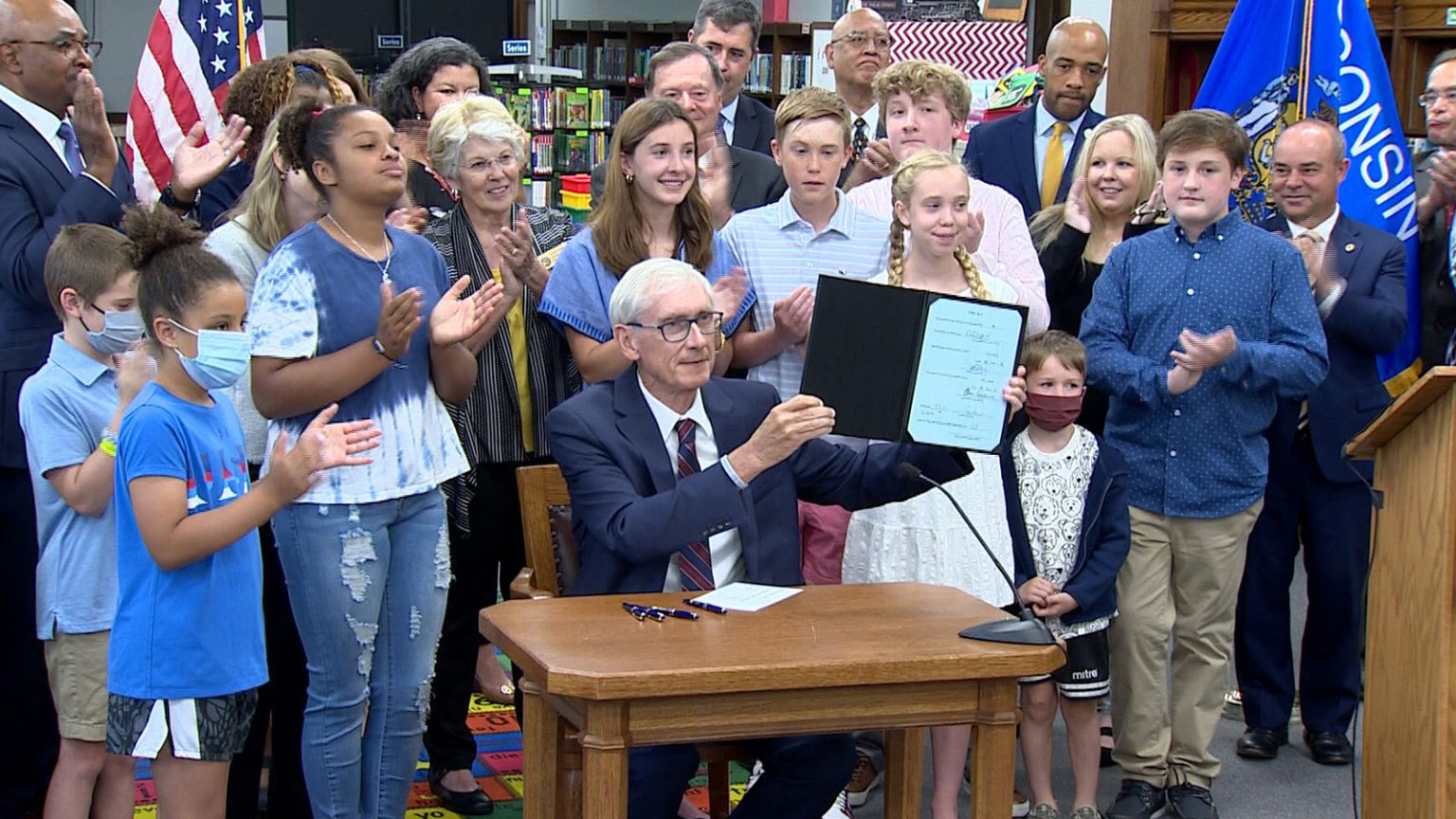
Gov. Tony Evers signs the state budget into law July 8, 2021 at Cumberland Elementary School in Whitefish Bay. He included 50 partial vetoes removing provisions from the Republican-written budget. (Credit: PBS Wisconsin)
Wisconsin Gov. Tony Evers signed the state’s $87.5 billion 2021-23 biennial budget into law July 8 at the Cumberland Elementary School in Whitefish Bay. The governor applied 50 partial vetoes to a bill crafted by Republicans after rejecting Evers’ original $91 billion proposal.
“In many ways, this budget presents a false choice between the priorities the people this state care about and deserve,” Evers said in a veto message.
However, that didn’t stop the governor from taking credit for what he labeled as the largest tax cut in the state’s history. The budget included a 10% cut for middle-class earners and $1 billion annual tax relief to those in the third individual income tax bracket.
Republicans were quick to reject Evers’ praise for the tax cuts.
“Governor Tony Evers deserves NO credit for signing our budget,” said Senate Majority Leader Devin LeMahieu, R-Oostburg, in a statement. “He got boxed into a corner and rather than fight for his unpopular budget and risk a political knockout, he and his team threw in the towel and signed our responsible budget.”
Evers had until July 9 to act on the budget as passed by the Legislature. The governor could have vetoed the document in its entirety and asked lawmakers to go back to the drawing board or force a two-thirds majority in both chambers to override his veto.
However, vetoing the entire budget was not on the table for Evers, as it would have jeopardized federal dollars flowing to Wisconsin that are contingent upon the state’s budget.
Evers also announced $100 million additional federal funding for public schools on top of what the Republican majority passed in the budget.
Wisconsin schools are receiving roughly $2.3 billion in federal stimulus funds from COVID-19 relief. The governor touted the total funding for schools as fulfilling his promise that the state budget cover two-thirds of costs for public schools.
Republicans disagree with Evers taking credit for that as well.
“When the Superintendent of Public Instruction distributes the federal COVID-19 education aid, all but a tiny fraction of the affluent districts who refused-person instruction last year will receive a larger increase in total spendable dollars for education than they received last budget,” countered state Senator Duey Stroebel, R-Cedarburg, in a statement.
Included among the measures Evers approved is an additional $100 million in federal funding for public schools on top of what the Republican majority passed in the budget.
Other budgetary items included:
- $465 million in new funding for roads and highways
- $129 million to expand broadband internet access
- $104 million to hospitals who serve a disproportionate share of low-income individuals
- $750,000 for crisis team training for law enforcement agencies
- $19 million in school mental health programs
- $72 million in property tax relief to technical colleges
- $87.5 million to increase wages for employees of the state and the UW System
The governor detailed the 50 partial vetoes he applied in his signing statement, which changed a variety of allocations and funding requirements included in the bill passed by the Legislature.
Even though the Wisconsin governor has some of the strongest veto power in the nation, Evers said the budget was written in a way to make it difficult to use much of that power to fulfill his promises.
“The biggest problems with the budget are not the things that need to be removed by the stroke of a pen, but rather the work the Legislature has left undone,” he said.
During a subsequent news conference, state budget writing committee co-chair Rep. Mark Born, R-Beaver Dam, said it has been “pretty clear from the headlines so far exactly what happened today and that is: Governor Evers signed the Republican-written state budget.”
Assembly Majority Leader Jim Steineke, R-Kaukana, echoed in a statement that Evers should not receive credit for tax cuts in the budget. Steineke criticized the partial vetoes as well, though emphasized his support for the final budget.
“While it’s unfortunate to see the governor issue more than 50 partial vetoes of a budget that both Republicans and Democrats voted for, this is still a strong budget for Wisconsin,” he said.
PBS Wisconsin reporter Will Kenneally contributed to this article.
 Passport
Passport




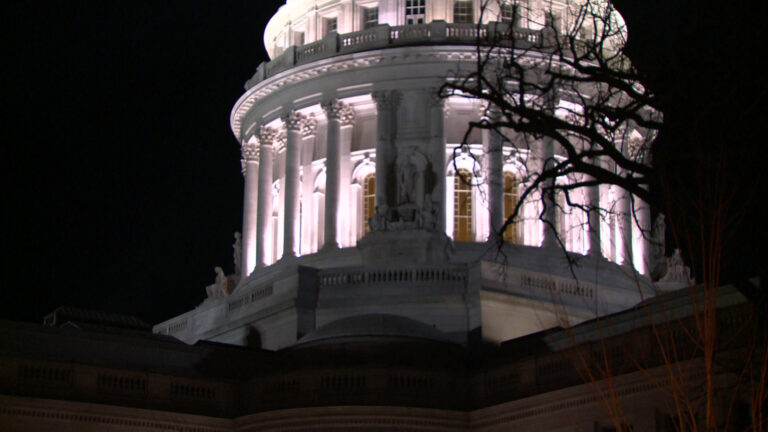
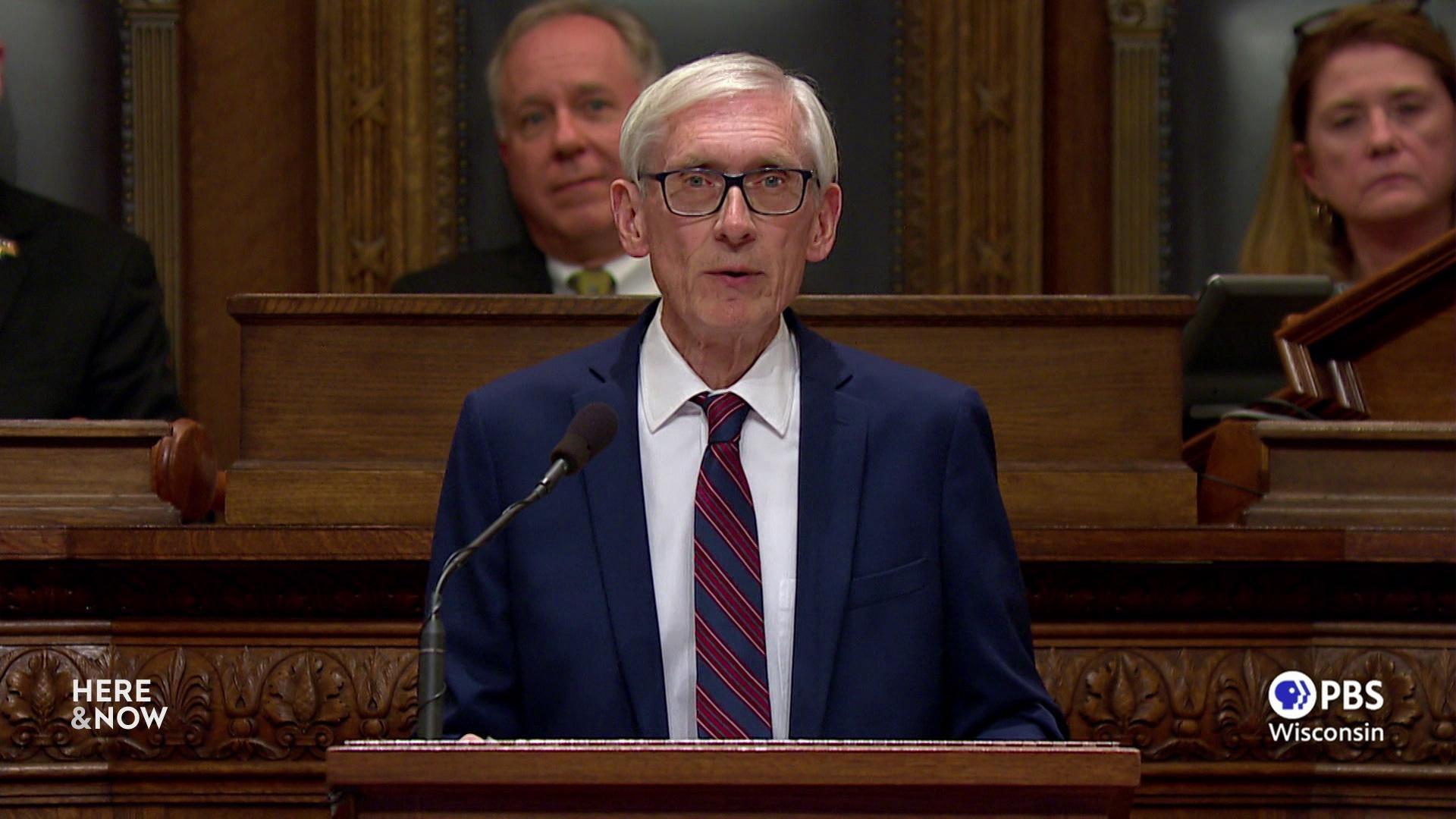
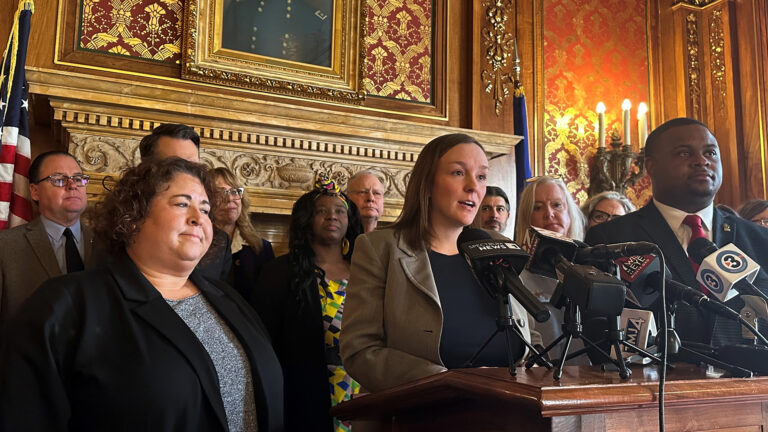
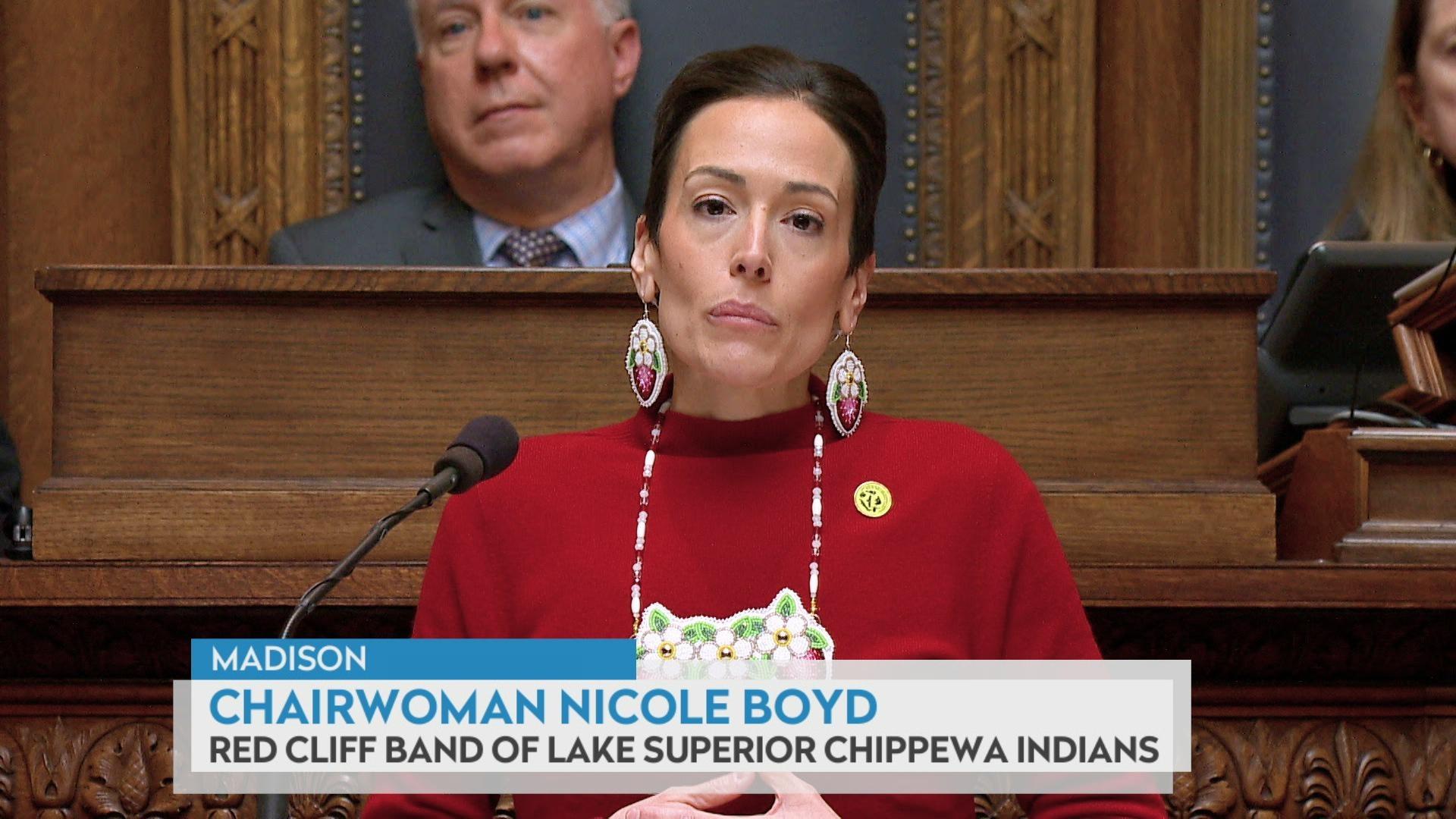
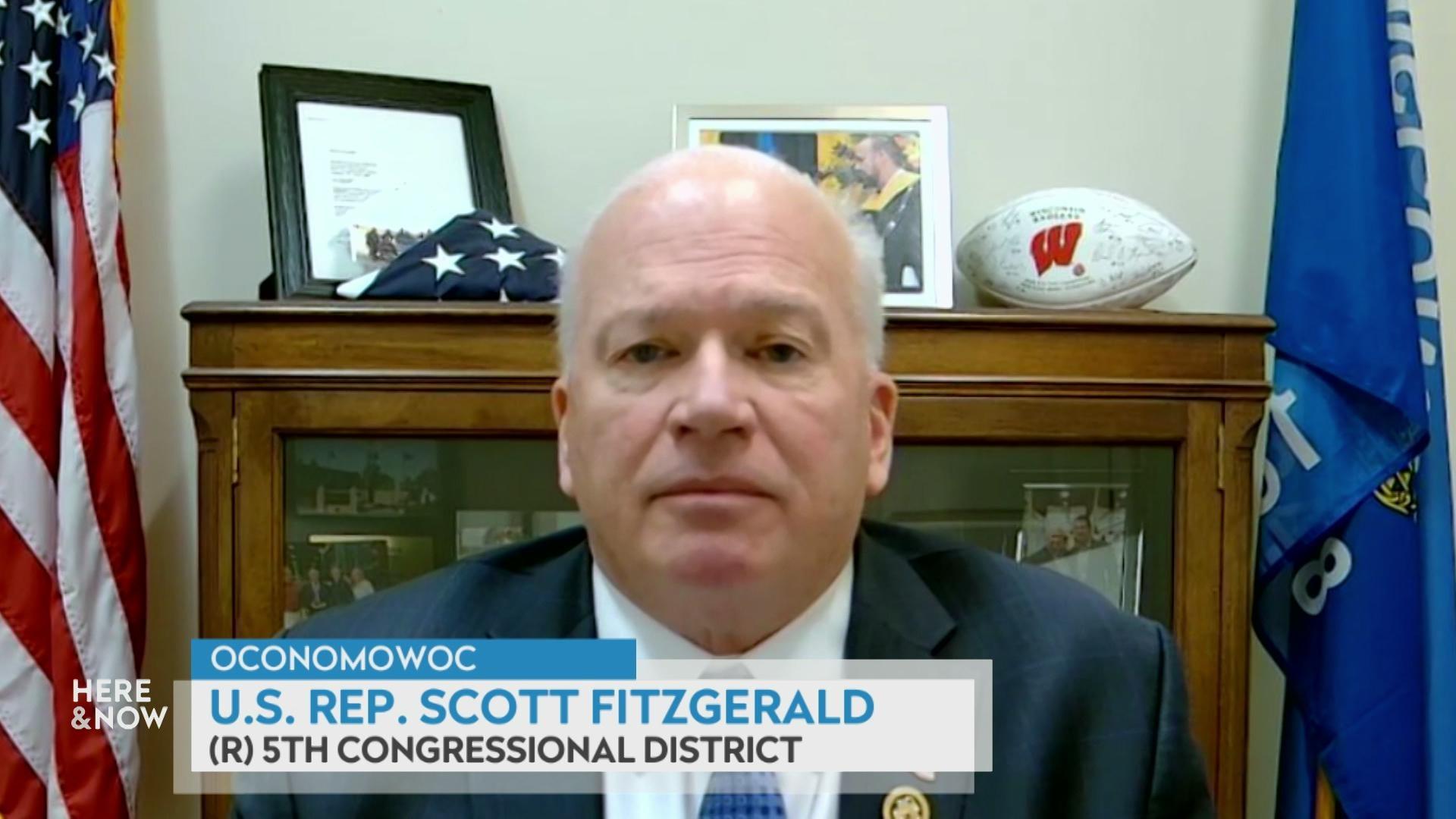
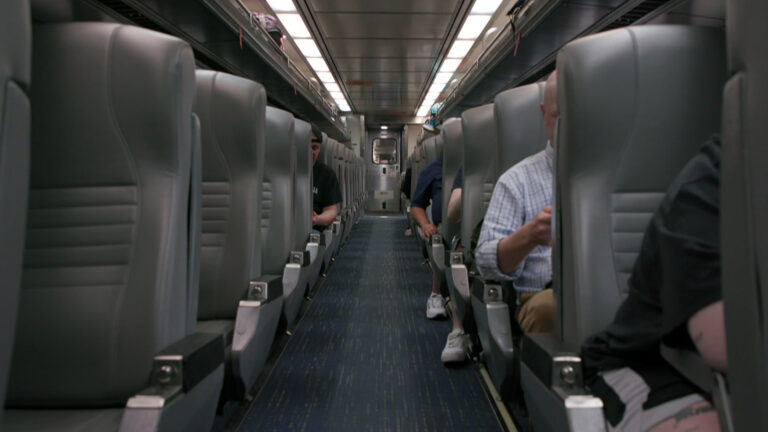

Follow Us